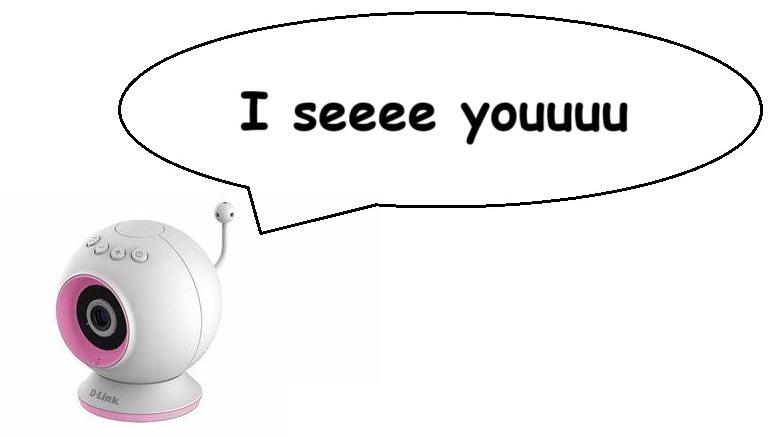Oh how I love this essay on child surveillance by Elizabeth Leigh Hunter. As she notes:
The Alpha Generation is the most surveilled group of people on the planet.
That merits more than a “Well, I barely ever look at it” shrug, which is how most people think about tracking apps and monitors.
Elizabeth is a Seattle-based writer at Seattle’s Child Magazine and mom of two. For the last few years she has worked tirelessly to help people understand not only the NEED for childhood independence, but the JOY of it. She founded a Let Grow Play Club at her children’s school and is writing a book about childhood independence. You can read her work at Medium and Substack.
The Distorted Mirror: When Supervision Becomes Surveillance
By Elizabeth Leigh Hunter
Private eyes…they’re watching you. They see your every move. — Hall and Oates
With only the ducks looking on
Starting in fourth grade my friends and I would sometimes meet at the Loantaka Reserve, a park nestled in the suburbs of North Jersey. It’s a lovely bit of nature, awash with creeks, marshlands, and migrating birds, bike trails, playgrounds, and picnic shelters. We called it “the duck pond.”
In the era before smartphones, we agreed on a time and place to be picked up, but we were not chaperoned.
If the crew was just girls, we’d giggle over teen magazines and talk about our lives: friends, boys, school, our bodies, our families, etc. In a coed group, we would clown around, teasing and laughing and occasionally touching, complete with the mortifying or electric shock that comes from touching another human being at that age.
We would share secrets, drop our masks, try on new ones. We would embarrass ourselves. I had my first kiss at Loantaka Park, with only the ducks looking on.
Parents’ Eyes Everywhere
Today, two-thirds of parents do not allow their fourth grader to walk or bike to a friend’s house without an adult. I suppose today an adult would be at the duck pond with us. In the best case, they’d stare at their phone in the corner of the picnic shelter; in the worst case, they’d puncture the magic of that wonderful age.
“Stop!”
“Put that down.”
“Don’t go in there, it’s muddy.”
“Ten minutes and we’re out of here.”
As always, I invite the reader to consider what is lost when we do not allow our children independent experiences.
Quite a lot, I think.
Looks kind of like a book cover for some romantic spy novel, but it’s just the duck pond, where kids used to play without their handlers, and survived to tell the tale.
Do kids really need privacy?
Thanks to facial recognition technology, social media, GPS, smart homes, nest cams, digital identification, CCTV, and even EdTech, the Alpha Generation is the most surveilled group of people on the planet.
If that isn’t disturbing enough, Alphas are also the least independent children in history. Our children are watched all the time: chaperones in the picnic shelter, Airtags in the backpack, hours of adult-led extracurriculars, parents who track their children’s schoolwork and test scores and movements all the way into college. In the last few years, aided by technology and always in the name of “safety,” parental surveillance has become shockingly intrusive.
Kids, like adults, need privacy. Privacy makes room for imagination, exploration, and experimentation. It allows people to make mistakes without embarrassment or explanation. In most of the West, personal privacy is a widely understood privilege (in most cases, a right) of living in a free society.
They know you’re watching
By the time a child is five years old, they are aware of both human and technological surveillance.
Baby monitors once used to help parents scoop up a crying baby are now video cameras that stay perched in kids’ bedrooms until they are four or five years old. Toddlers know their parents are watching; families talk through cameras on different floors of the same house. Nanny cams and livestreamed daycare allow parents to watch their young child remotely all day long. (They may also allow for tech-savvy bad actors to do the same, but that’s another piece.)
Once, I thought it was funny to watch my friend speak to their toddler through the camera: “Maryannnnnn, I see you. Put that cup down.” It felt harmless. I invite you to consider how you would feel if, during a bout of curiosity, you picked something up and a faceless digital voice came out of nowhere and told you to PUT IT DOWN.
Schools are always watching and reporting, too
When parents shout to Alexa to put the Bluey soundtrack on, and she complies, children understand that Alexa is listening. When they ask to see “the blue dot” move as Dad approaches home, children know we are watching.
At school, educational technology like Schoology and Canvas allow parents to monitor kids’ schoolwork in minute detail. CCTV cameras watch children in the halls, teachers watch them in class, coaches and counselors watch them after school.
Even their doorbell watches them as they step into their home.
All of this, of course, is in addition to how adults chaperone, supervise, and otherwise infiltrate children’s meager free time.
We worry about who else is watching our kids and we worry about what our kids are watching.
I say we don’t worry enough about what it means that we are watching them—all the time.
This is a real image from a website full of tracking and monitoring technology for children. Do you trust these faceless scolds with your child’s every move? Maybe, instead, you learn to trust your child?
The effect of being observed
We know through the well-researched observer effect that people change their behavior when they are being watched.
Our children’s reality, in which they are both conspicuously and subtly surveilled at all times, is new. In the years ahead, we’ll learn more about the effects of such pervasive surveillance. In the meantime, let’s look at historical testimony and current research for insight.
In Stasi Germany, a hotbed of paranoid surveillance, historians estimate there was one informant for every 6.5 citizens. Years later, when former citizens of East Berlin gained access to the files the Stasi kept on them, one citizen described his file like this:
“It was like looking in a distorted mirror; the files show only one version of yourself.”
When Edward Snowden revealed that the American government was spying on its people, a Harvard Law fellow, Jon Penney, saw an opportunity to examine how pervasive spying affected the population.
After controlling for other factors, what he concluded was that surveillance begat self-censorship.
According to Penney, surveillance that deters people from exercising their rights, including the freedom to read, think, and communicate privately, is corrosive to political discourse.
What you see when you surveil your child isn’t your child—not fully. It’s your child when they know they’re being watched.
Perhaps most disturbingly, a 2024 study published in the journal Neuroscience of Consciousness examined how surveillance changes not only our conscious behavior, but also the subconscious function of our brains. Our brain chemistry changes when we are being watched.
When is a child able to be themselves—warts and all—when they are watched, clocked, and tracked like hostile agents every moment of their lives?
The paradox of surveilling for safety
Continually surveilling children—“just to make sure they’re safe!—tells them the world around them is unsafe. Many parents and caregivers don’t even let children under twelve spend time unsupervised in their own neighborhoods. If children think their own neighborhood is too dangerous to navigate without an adult, imagine how scary the wider world must be. It is no wonder young people experience anxiety at historically astronomical rates.
They are afraid of their own playgrounds.
Paradoxically, perpetual adult supervision also tells children their own parents don’t trust them. For younger children, this manifests as the parent staring from a park bench, or worse, standing in the playground woodchips shouting, “Don’t climb so high!” “Slow down!” “Stay where I can see you!”
For older children, this manifests as a GPS (and sometimes Internet)-enabled smartphones, expensive Apple watches, and AirTags tucked in backpacks.
Regardless of the method of surveillance, the message is clear.
We don’t trust the world with our kids. And we don’t trust our kids in the world.
This is a squeeze indeed.
There is no deserted island…or is there?
Admittedly, I can’t advise on how to protect children’s personal data from government spying or corporate tech giants.
I don’t know what it feels like to have been watched, clocked, and tracked since before I took my first breath.
I rely on my smartphone for directions. I buy products served to me by a powerful algorithm. I still occasionally post photos of my children.
These changes feel permanent and insurmountable, and I often find myself dreaming of a deserted island on which to raise my children.
But even an exhaustive scan of Google Maps (see—I am part of the problem!) yields no magic. There is no deserted island.
Except… there is.
It is childhood: the short, glorious period between the ages of five and twelve years old, when children’s brains are sponges. and experiences turn into memories that sink deep into their consciousness, strengthen their locus of control, and shape their understanding of the world for the rest of their lives.
Letting children walk themselves to school, ride their bikes to their friends’ houses, or play in the woods on their own—whatever freedoms we can afford them—may be the only opportunity our children ever have to feel uninhibited by prying eyes.
We can give that to them.
No—we must give that to them.
We can’t stop Big Brother, or the march of technology, or the myriad ways our children’s precious data is collected and bought and sold.
But we can give them a bit of freedom. Just so they know what it feels like.




1 Comment
Great post , Thanks for sharing.